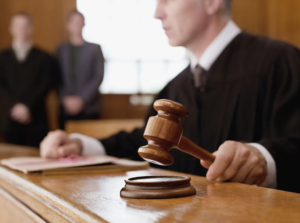Do You Know The Difference Between Infractions, Misdemeanors, and Felonies? Most People Who Get Trouble With Law Don’t
 Criminal law classifies crimes in different categories. The classification of the crime dictates the severity of punishment, crimes are categorized in grades. There are three grades of crime: infractions, misdemeanors, and felonies.
Criminal law classifies crimes in different categories. The classification of the crime dictates the severity of punishment, crimes are categorized in grades. There are three grades of crime: infractions, misdemeanors, and felonies.
Infractions, misdemeanors, and felonies carry different repercussions. All of these are given punishments such as a jail sentence, bail or other court-given punishments. Learn about their distinctions below.
Infractions
Infractions are also known as petty crimes or violations. These are the least serious crimes in the classification. They carry the least severe punishments similar to fines for traffic and littering. Courts usually issue tickets rather than jail time.
These minor crimes don’t require you to hire a lawyer because you won’t have to go to court nor spend time in jail. Also, infraction crimes don’t appear in criminal records.
However, an infraction can turn into a misdemeanor in certain cases. For example, running an unlicensed business is an infraction. However, if the business is fraudulent, the crime rises to a misdemeanor or even a felony.
Misdemeanors
 Misdemeanors are more serious crimes compared to infractions. For example, it’s a misdemeanor crime to drive under the influence of drugs or alcohol. Other misdemeanors include vandalism, petty theft, harassment/assault, disorderly misconduct, and trespassing.
Misdemeanors are more serious crimes compared to infractions. For example, it’s a misdemeanor crime to drive under the influence of drugs or alcohol. Other misdemeanors include vandalism, petty theft, harassment/assault, disorderly misconduct, and trespassing.
Such crimes are punishable by jail with a sentence of up to a year. Alternatively, you can get other penalties such as community service, court supervision, rehabilitation, or restitution payment to the victim.
Every state has different levels of misdemeanors organized by class, either one to four or A to D. Class one/A will have the highest penalty charges of 6 months and above in custody, while class four/D will have the least charge of 30 days or less.
If you get a jail sentence, you will serve at the local county jail rather than state-operated prisons, which means fewer restrictions. However, you will have a criminal record.
A misdemeanor can also rise to the level of a felony, depending on the circumstances. For example, battery is a misdemeanor, but assault using a baseball bat escalates to aggravated assault.
Felonies
 Felonies are the highest level of criminal offenses that carry the most severe punishments. Crimes under this category involve heinous intent, such as murder, or result in serious outcomes, such as loss of life or property damage. Other examples of felony crimes include rape, arson, grand theft, manslaughter, and aggravated assault.
Felonies are the highest level of criminal offenses that carry the most severe punishments. Crimes under this category involve heinous intent, such as murder, or result in serious outcomes, such as loss of life or property damage. Other examples of felony crimes include rape, arson, grand theft, manslaughter, and aggravated assault.
Depending on the crime and your jurisdiction, the penalty charge can be prison time, a life sentence without parole, execution, fines, or alternative sentencing like rehabilitation or home confinement. When you’re sentenced to prison time, you’ll serve at a state or federal-operated prison.
Felony offenses have even more repercussions, including loss of civil rights, such as the ability to vote, carry or own a weapon, or work in certain career fields. Moreover, felony charges affect anyone who aided and abetted the offender before, during, and after the crime. Again, felony offenses remain in individuals’ records.
Similar to misdemeanors, felonies too have classes. In Florida, there’s a capital felony punishable by death or life imprisonment. A life felony is also life in prison with a fine of about $15,000. Incarceration of first-, second-, and third-degree felonies means up to 30, 15, and 5 years in prison respectively, and with a fine of $10,000 for first- and second-degree and $5,000 for third-degree felonies.
Note that for some major crimes, the bail amount is never set. Suspects are kept in custody until a jury verdict.
As you can see, crime is expensive, and nobody should intend to clash with the law.
BailOption Is Here To Help You
BailOption is your trusted partner to help you post bail fast and quiet as possible. Contact BailOption for a consultation. We will answer more questions about bail bond posting. We can also answer your questions about self incrimination.
Have Police arrested you in Florida? BailOption is here for you. BailOption will not only post your initial bond but will help you with any increases you face as your case progresses. Give us a call today so that we may help you.
If you would like to learn more about how we can assist you, contact us today through the website.
You can also call us directly at .
BailOption representatives also speak Spanish!
Information detailed in this article is not construed as legal advice. The information provided in this article is for informational purposes only.